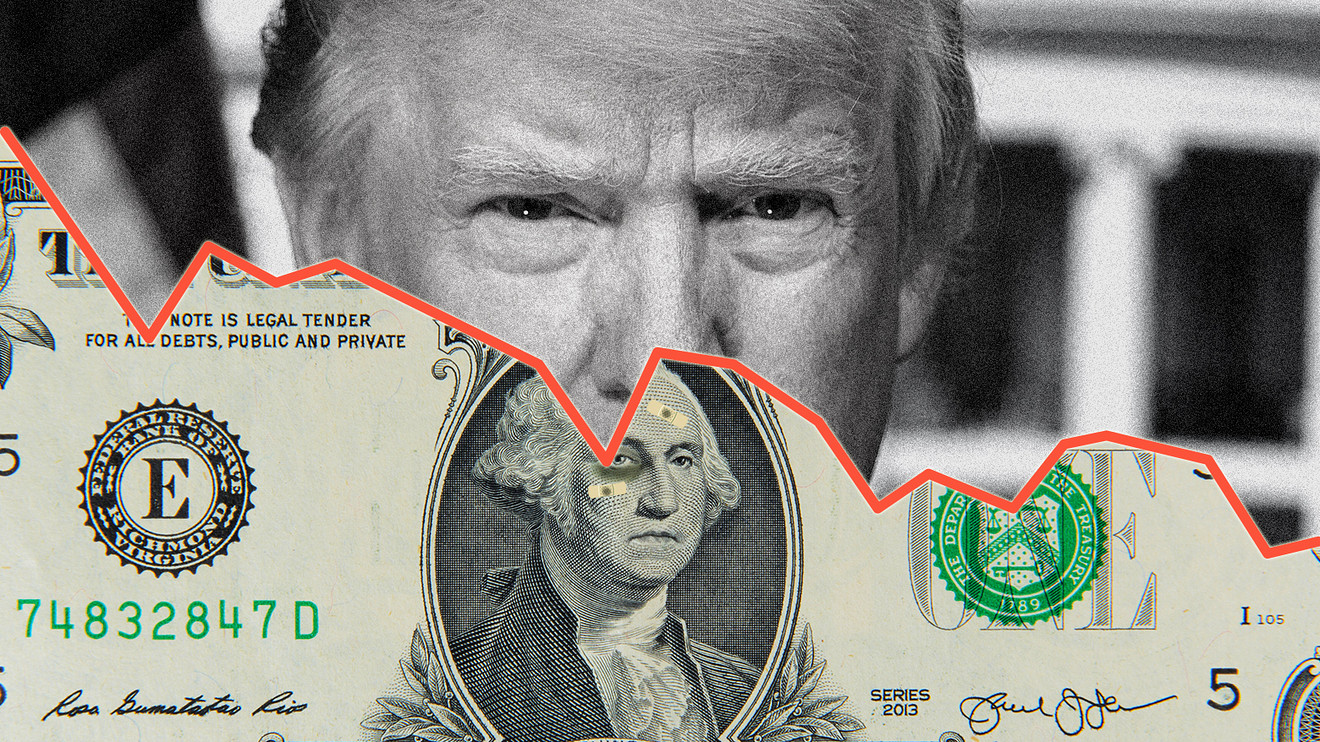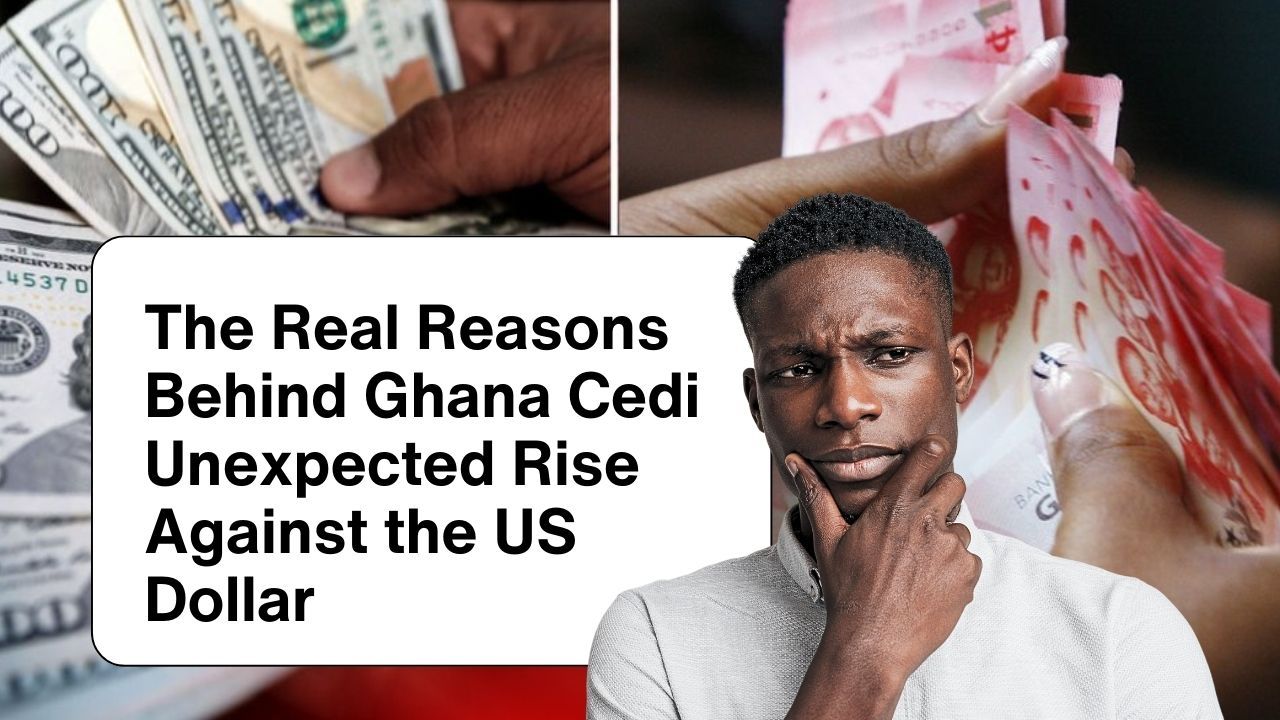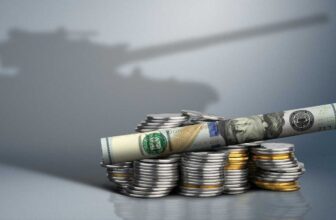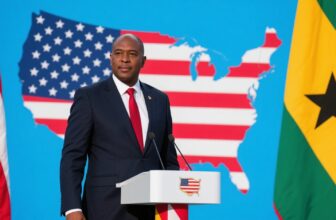Trump’s Weaker-Dollar Agenda

Donald Trump and his advisers have long blamed a “strong” U.S. dollar for America’s large trade deficits and weak manufacturing. They argue that a lower dollar would boost U.S. exports and shrink the trade gap. For example, Reuters notes Trump’s complaint that “excessive dollar strength has blunted U.S. export competitiveness, inflated the trade deficit and hurt the U.S. manufacturing sector”. Trump’s team (especially trade advisor Robert Lighthizer) explicitly proposed devaluing the currency: “A weaker dollar would make U.S. exports cheaper on the world market and potentially reduce the U.S.’ yawning trade deficit. In practice, they discuss pressuring other countries or even using U.S. reserves to sell dollars, though allies would likely resist such moves
- Export Competitiveness: A cheaper dollar makes American goods and services less expensive abroad. Trump’s advisors stress this point: a weaker dollar “would make U.S. exports cheaper” and help narrow the trade deficit. This could in theory revive some U.S. manufacturing and aid political goals like election-year growth.
- Trade Deficits: By this logic, lowering the dollar could correct the U.S. trade imbalance. (Indeed, Ghana’s rise of exports in a strong-currency era is part of why its cedi is appreciating.) However, most U.S. economists note the causality is complex – a strong economy and low inflation often cause a strong dollar, not vice versa.
- Inflation and Imports: Trump’s own advisers acknowledge a weaker dollar would make imports (especially consumer goods and commodities) more expensive, risking higher inflation. Bloomberg quotes one official warning it could “send consumer prices for imported products soaring”.
- Geopolitical Effects: Deliberate devaluation risks retaliation. Currencies are largely market-driven, and any aggressive intervention could spark international pushback or even a currency war. Analyses warn such moves “could jeopardize the dollar’s status as the world’s reserve currency” and undermine U.S. sanctions leverage. Wall Street strongly opposes bureaucratic currency meddling (which could destabilize financial markets).
- Policy Constraints: In practice, the Federal Reserve’s independence limits overt weakening. Trump frequently pressured the Fed to cut rates (and complained when they raised rates in 2018), but experts note that cutting rates alone “is unlikely to weaken the dollar to the level that Trump wants”. Without new authority from Congress, the administration has little formal power to sell dollars on the open market.
In summary, Trump’s rationale is economic nationalism: he wants a weaker dollar to make U.S. products cheaper abroad and reduce deficits. However, analysts caution this comes with big risks – higher U.S. inflation, market turmoil, and straining global finance – and would require challenging established policy norms.
Ghana’s Strong Cedi: Positive Interpretation
In contrast, Ghanaian officials and analysts see the cedi’s recent appreciation as a welcome sign of stability. In 2025 the cedi has strengthened dramatically against the dollar (around 40% year-to-date as of May) due to a mix of higher export revenues and policy reformsreuters.com. Ghana’s president and central bank have publicly celebrated this trend, linking it to lower debt burdens and inflation risks. For example, President Mahama remarked that the stronger cedi “reduced our total debt by almost 150 billion cedis” in five months and would help meet debt-sustainability targetsreuters.com. He highlighted that reaching debt targets early “begins to give us fiscal space to invest in the most productive sectors”. The Bank of Ghana similarly attributes the cedi’s surge to sound policy rather than one-off fixes: Governor Johnson Asiama emphasized the currency’s rise was from “broader economic improvements” like tight monetary policy and foreign exchange reforms
Figure: Ghana’s cedi (orange line) has outperformed many peers in 2025, gaining over 40% vs. the dollarr Officials credit rising export inflows (notably gold and cocoa) and disciplined fiscal/monetary policies for this trend.
- Debt Reduction & Fiscal Space: A stronger cedi lowers the local currency cost of servicing dollar-denominated debt. As Reuters reports, the 40%-plus cedi rally “shrunk the cost of the country’s foreign debt and [gave] it more fiscal breathing room”. This directly supports Ghana’s IMF-backed goal of reducing debt-to-GDP.
- Export Inflows: Ghana enjoyed windfalls from high gold and cocoa prices in 2024–25, which brought in foreign currency and strengthened the cedi. Analysts note that with exports growing faster than imports, Ghana’s trade balance improved sharply, naturally boosting the currency. (Under new rules, part of export proceeds e.g. 20% of gold earnings – must be converted to cedis, further raising cedi demand.)
- Monetary Policy: The Bank of Ghana maintained very tight policy to curb inflation (policy rates at 28%) and implemented foreign-exchange auction reforms. These measures stabilized inflation expectations and encouraged remittance inflows, which also buoyed the cedi. The BoG insists it has not “engineered an unsustainable appreciation” or spent reserves; instead, it credits the overall macro framework.
- Economic Confidence: Rating agencies and investors have responded favorably. Ghana’s disciplined fiscal plans (under IMF programs) led to credit upgrades and increased foreign investment inflows. A stable, appreciating currency signals confidence in the economy, which can attract more long-term investment.
Ghana’s official tone is upbeat: authorities interpret the cedi’s rise as evidence their reforms are working. They acknowledge potential volatility (some analysts caution that a drop in cocoa/oil prices could reverse gains) but generally welcome the stronger cedi as a buffer against inflation and debt distress. In short, Ghana’s goal today is to lock in macro stability, even if the cedi remains strong, because the immediate benefit is a lighter foreign-debt load and more room for growth-enhancing spending.
Implications for U.S.–Ghana Trade
The two currency goals – a weaker dollar vs. a stronger cedi – have mixed implications for bilateral trade:
- Price Competitiveness: If the dollar falls and the cedi rises, U.S. goods become cheaper in Ghana, while Ghanaian exports become more expensive for U.S. buyers. Ghana’s exports to the U.S. are relatively modest (around 6% of Ghana’s total exports wits.worldbank.org), so this shift might slightly boost U.S. exports (machinery, services, etc.) into Ghana. Conversely, Ghana’s exporters (gold, cocoa, etc.) may earn fewer dollars per unit, which could dampen export volumes or revenues to the U.S.
- Trade Balance Effects: In Ghana’s case, a stronger cedi already reflects a narrowing trade deficit (as exports now outpace imports). U.S. exporters would likely welcome any further dollar weakening because U.S. exports broadly would be more competitive worldwide. But for Ghana, an excessively strong cedi could hurt export industries; the government must balance this against the debt benefits. In practice, Ghana’s top trading partners (China, UK, Netherlands, India) drive its export flows far more than the U.S. (about 5–18% each), so U.S.-Ghana trade is only a small slice of the picture.
- Investment Flows: Currency moves influence investment. A weaker dollar can make foreign assets relatively cheaper for U.S. investors, potentially encouraging American FDI in Ghana (for example, in mining, energy, or infrastructure) because Ghana’s returns might look more attractive. Similarly, a strong cedi can raise the value of Ghana’s local assets to foreign investors (making equities or bonds more expensive but also possibly reflecting stronger fundamentals). On the Ghanaian side, a stable and appreciating currency tends to improve investor confidence – Ghana’s recent reforms and currency strength have reportedly attracted foreign capital.
In sum, if Trump’s policies did weaken the dollar and Ghana’s cedi stayed strong, Ghanaian importers (of U.S. goods like equipment) would benefit, but Ghanaian exporters to the U.S. might face tougher competition. Overall trade volumes between the two countries are moderate (total trade was on the order of $1–1.5 billion per year), so large swings in currency values would create winners and losers but not fundamentally realign the partnership.
Broader Macroeconomic Impact
Each country’s currency stance also ties into larger policy trade-offs:
- U.S. Inflation and Policy: Trump’s push for a weaker dollar would conflict with the Federal Reserve’s inflation-fighting mandate. Cutting interest rates or intervening to weaken the dollar could boost inflation – the very problem the Fed has been battling. Commentators note that undermining Fed independence to pursue currency goals would carry “huge cost” to market confidence. In addition, depreciating the dollar could raise U.S. import prices, further fueling inflation, and would widen the U.S. money supply. In short, a deliberate devaluation strategy risks destabilizing the U.S. economy even as it tries to grow exports.
- Ghana’s Inflation and Policy: Conversely, Ghana’s stronger currency helps dampen inflation (by making imported goods and fuel cheaper in cedi terms). This gives the Bank of Ghana some policy space to cut rates in the future as inflation comes down – a virtuous cycle. However, if the cedi becomes too strong, Ghanaian exporters may lobby for less pressure on the currency to maintain competitiveness. For now, Ghana’s priority is meeting IMF targets: it continues strict fiscal consolidation and keeps policy rates high, trusting that the balanced trade and currency gains will persist.
- Global Financial Stability: A concerted U.S. effort to devalue the dollar could unsettle global markets (since the dollar is the primary reserve currency). It might also spur other countries to respond in kind, adding volatility. Ghana, by contrast, is more concerned with stabilizing its own economy than with reserve status issues. In fact, a weaker dollar might help Ghana indirectly by keeping commodity prices (priced in dollars) higher, but it could also make Ghana’s own debt cheaper to service in local terms (as seen in Ghana’s case).
Overall, Trump’s weak-dollar objective and Ghana’s strong-currency achievements point in opposite directions economically. For the U.S., a cheap dollar is a tool to rebalance global trade; for Ghana, a strong cedi is a metric of recovery from crisis. If both occur simultaneously, U.S. exporters get a boost while Ghana’s foreign obligations ease. But each side faces policy constraints: U.S. risks inflation and financial backlash, while Ghana risks hurting its export sector. Policymakers in each country must therefore weigh these gains and costs.
Key Takeaways:
- Trump believes a weaker USD will spur exports and cut trade deficits. Critics warn it could stoke U.S. inflation and undermine global confidence.
- Ghana’s leadership views the cedi’s rise as evidence that reforms are paying off, reducing debt burdens and inflation pressuresr.
- In bilateral trade, a weaker dollar (stronger cedi) makes U.S. goods cheaper in Ghana and Ghanaian exports costlier in the U.S. Given the modest US–Ghana trade share (~6% of Ghana’s exports), this effect is real but limited.
- Currency policies affect investment flows: U.S. investors may seek cheaper foreign assets with a weaker dollar, while Ghana’s stable cedi attracts confidence.
- Both countries must balance currency goals against macro policy: the U.S. must guard against inflation and Fed credibility, while Ghana must ensure the cedi’s strength does not reverse if external conditions change.
Sources: Analyses of Trump’s currency stance and reports from Ghana’s officials and news media reuters.com, nmyjoyonline.com, wits.worldbank.org provide the empirical basis for these conclusions.






